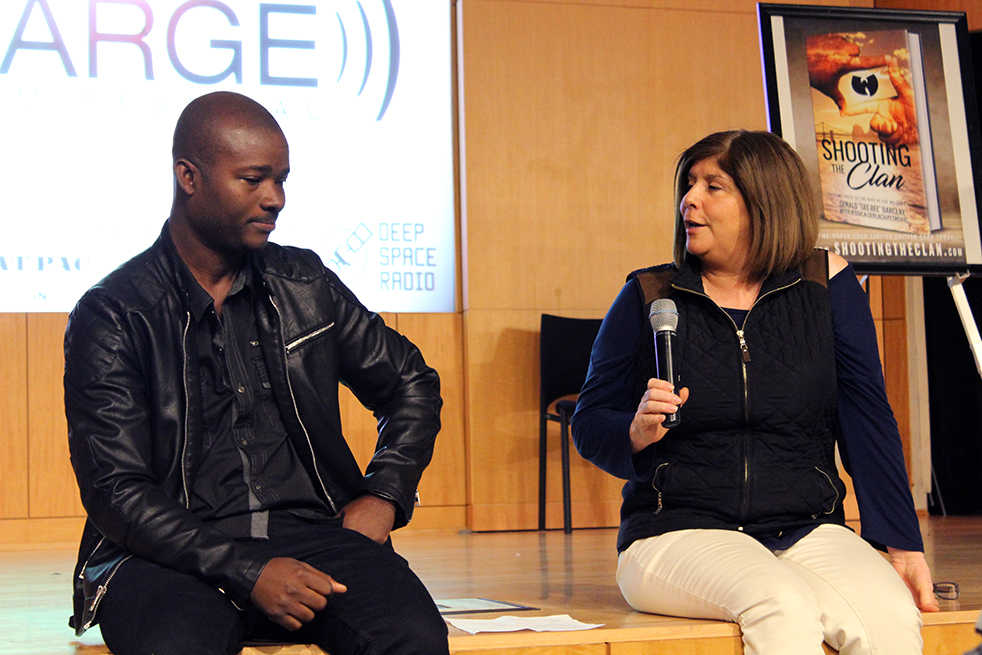Though the term “music film” may seem obscure on the surface, it is a genre with which everyone, on some level, is intimately familiar. Streaming services like, Netflix and Hulu, play host to a slew of documentaries and biopics on prominent musicians.
Soundtrack-driven films, like “Les Misérables” and “La La Land,” have shown huge ticket-selling potential, and the post-MTV landscape has given viewers the ability to watch Taylor Swift’s “Look What You Made Me Do” whenever they please.
To celebrate films like these, a few artistic minds came together to create the ATLarge Film Festival. The inaugural Atlanta
festival comes from the same vein of meticulously curated events, like South by Southwest (SXSW) and Sundance.
“I just felt like the music film genre was really underappreciated,” said event co-founder Rob Ganger. “With Atlanta, its film industry and music industry
are thriving.”
“Obviously the music industry has for a lot longer, but the film industry is in some ways surpassing it now. So, we decided that the time was right to start this festival to kind of do both things,” Ganger added.
The inaugural festival, held between Oct. 27 and 29, brought creators from all over the United States to Atlanta in order to share their films and speak to attendees.
One of these creators, director Jodi Wille, brought her film “The Source Family” to the festival for its first ever screening in the Southeast. The film had previously sold out screenings in several prominent festivals worldwide, including SXSW.
“I think film festivals are so
enriching for a city because having a festival is very different than just having movies at a theater,” Wille said. “Oftentimes with film festivals, the directors are willing to bring out filmmakers and the subjects of their film, so it allows for cultural conversations.”
The festival decided not to accept submissions in its first year, instead opting to carefully curate the films that filled the walls of Georgia State’s Creative Media Industries Institute. While the turnout was not huge, the intimate feel was par for the course for an inaugural festival.
“As a first year event, it’s always tough to get traction, so we didn’t have high expectations for a big turnout,” Ganger explained. “What’s important to us is the quality of the curation and the people that we are bringing in, and that really surpassed our expectations.
“Some of the connections that were made through the experience have kind of blown our minds. For that, it was completely worth it, and we feel we have a great
foundation moving forward,” Granger continued.
By bringing an event with great potential to grow to Atlanta, Granger and the other organizers hope to expedite the city’s path to becoming a “cultural powerhouse.” Music has always been a big as well as an integral part of Atlanta’s DNA, and production companies have been making high budget blockbusters right outside Tech’s doorstep, including Marvel movies like “Ant Man.”
Ganger believes that these developments will have an impact on the way that Atlanta’s students interact with the city and its culture. “Getting students involved is very important to us,” he said. “We really want to engage the younger generation because [they] have so much access to everything.
“We live in turbulent times,” Ganger continued. “What is an artist’s role in that, and what can they do to make a difference in their own life and within their community?”
Wille echoed his sentiments, focusing on the interplay between media, youth and societal issues.
“You bring communities together with film festivals,” she said. “You get people to speak and share ideas, and during times like right now, when there is so much happening in our country, conversations and community
are more important than ever.
“Film festivals bring people together in a way that can be revitalizing for a community; I think any person, regardless of resources or age, can start sharing films with their friends,” Wille continued. “Really, all it takes is a desire to share a film, and the desire to think about a film on a larger level — to realize that each film has themes that come with it and messages
of value.
“They can be igniters of conversations that are beneficial to have in our culture. For me, as a film programmer, I think about films that speak to the times we are in,” she concluded.
The interest of sponsors, coupled with the attention from filmmakers and other industry leaders, have already put ATLarge in a promising position. ATLarge could easily turn into Atlanta’s premiere film festival in the coming years while also amplifying the importance of music in film.
